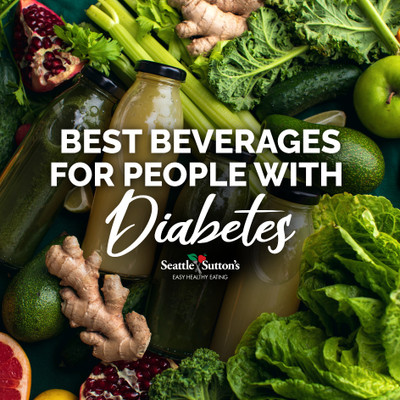Getting More Energy From Your Diet
Energy is something most of us want more of and we often seek it in form of caffeine or sugar as a quick fix, but that only last for so long before crashing. Sometimes we all need extra energy to tackle more of those daily duties, finally start an exercise routine, or simply for more energy to play with our kids.
Well, did you know that the exact definition of a calorie is a unit of energy? Technically all foods give us energy, however, it is important to eat healthily and to obtain healthy eating habits to stretch that energy to its max.
Do you wake up feeling exhausted or find yourself dragging midday – even if you got a good night’s sleep – your diet may be to blame. Nutrient deficiencies, unstable blood sugars, and even excess weight can cause fatigue and leave you feeling drained.
Below are seven healthy eating tips that can do just that and with none of the caffeine jitters!
EAT BREAKFAST
Do you regularly skip breakfast? That decision likely affects the rest of your morning, and possibly even the rest of your day! Most of us have heard that breakfast is the most important meal of the day, but maybe you did not know it is the one key ways to maximize your daily energy.
Overnight is basically a long fast, and your body is running on fumes when you wake up in the morning. It is important to get fuel first thing in the morning, ideally between 60 and 90 minutes of waking up. Your body needs to refuel after an 8-12 hour long fast for sustained mental work and to support your activity.
Research has shown that breakfast eaters tend to have better concentration and problem-solving ability to handle tasks that require memory. Athletes have also been found to have more endurance if they start the day with breakfast.
Having regular meals helps to spread nutrients throughout the day which can provide more stable energy all day long. Skipping breakfast can also set people up to fall for some of our other energy busters on this list, such as bigger meals, grabbing convenient, unhealthy foods such as sweets, and more.
Striving for variety at breakfast time provides the body with sustained energy and can delay hunger symptoms for several hours. Aim for a balance of complex carbohydrates and protein for your morning fuel.
STEER AWAY FROM THE SWEETS
While carbohydrates are your body’s preferred and major source of energy, choosing the wrong carbohydrates can leave you running out of steam quickly. Complex carbohydrates help provide that energy in a more long-lasting way due to their fiber content, increased nutrient profile, and ability to better balance your blood sugar.
There is nothing worse for energy than consuming too much sugar. Sugar is quickly absorbed into the bloodstream as glucose. This results in a quick burst of energy, but shortly thereafter an energy crash where a nap sounds a lot more inviting than getting anything done.
Many people subscribe to the thinking that “cutting carbs” is an easy way to eat healthier and increase your energy. Well, healthy eating is more complicated than that! Remember, carbohydrates are an essential energy source, offer a variety of important nutrients, and are actually the brain’s preferred source of energy.
Glucose from carbohydrates fuels the body’s cells. To get the most from your carbohydrate choices, limit simple sugars like sweets, sodas, juices, and candies, which can raise blood sugars and provide a quick jolt of energy but then ultimately send you crashing. Instead, choose whole grains, fresh fruits and vegetables, and beans.
Do not fear carbohydrates, they are not bad for you. Sure, a green salad with chicken is a nice and healthy meal but it will not translate into quick energy. At every meal, try to include some fruit, a small piece of bread, or beans for some quickly released energy.
FOCUS ON SMALLER MEALS
Smaller, more frequent meals will help keep metabolism and energy up throughout the day. Eating one or two large meals per day requires a significant amount of energy focused on digesting food and less on other things. Energy levels often dip in the afternoon, so it is a great time to add a small healthy snack to your routine like some fruit, a handful of nuts, or a combination of both, such as a trail mix.
The brain has very few energy reserves of its own and needs a steady supply of nutrients. If you are having low energy throughout the day, splitting your meals into smaller, more frequent intake throughout the day may help improve your energy. For some people, they feel better eating small meals and snacks every few hours rather than eating 2-3 large meals per day.
AVOID RICH FOODS
Fatty meals equal foggy brain. The heaviness and fat in meals decreases the oxygen available to the body to use for energy. So, eat a lighter breakfast and lunch while at work, so that haze doesn’t set in after your break.
Fat in the diet is a concentrated source of energy, providing more calories per gram than any other nutrient. Fat supplies 9 calories per gram, compared to 4 calories offered by protein and carbohydrates. Although the body can use fat for energy, it is not its preferred source of energy.
Foods with high fat content take longer to digest than other foods. This can lead to issues with acid reflux, which can influence a person’s willingness to engage in activity. This delay in digestion can also lead to someone feeling that overstuffed feeling, which often leaves us feeling more sleepy than energized.

PROTEIN POWER
Meals that contain mostly carbohydrates can increase serotonin levels, which can contribute to drowsiness. That is why it is important to make sure you are getting a mix of macronutrients – carbs, protein, and fat – every time you eat. Meals that have a good balance of protein may help you avoid this after-meal slump.
Unlike fats, proteins can be converted into glucose to provide fuel for the brain. However, protein is not the body’s preferred source of fuel. Protein is a part of every cell in your body. Our diets require a constant supply of proteins to make and repair body cells.
Protein is essential for the body to work correctly and without the right amount, you can be left feeling weak and tired. For example, hemoglobin is a protein that transports oxygen in the blood to body cells. When the cells do not receive enough oxygen, often resulting in anemia, the body feels drained of energy and weak.
For the best energy boost, evenly spread your protein intake throughout the day. Most people eat the least amount of protein at the beginning of the day and the most at the end of the day. For more sustained energy throughout the day, focus on getting about the same amount of protein at each meal.
DRINK MORE FLUIDS
Dehydration is often confused with fatigue. Dehydration reduces blood flow to your organs, leaving you sluggish. Abide by the general fluid recommendation of drinking at least eight 8-ounce glasses of liquids, such as water, each day and more if your urine is on the darker yellow side.
Water is vital to carry nutrients to the cells and remove waste products from the body. If you are not drinking enough water throughout the day, one of the first symptoms you might notice is feeling fatigued.
Increasing your water intake can sometimes be a hard goal to achieve. Disliking the taste of water, remembering to drink up, and many other barriers can prevent people from drinking enough throughout the day. Experiment with different ways of drinking to see if one helps you reach your daily eight. Some people find that drinking from a straw or having their water ice cold helps to improve their intake. Others commit to bringing a water bottle with them everywhere they go so they can always easily take a sip. Another idea is to set a goal to drink an entire glass of water each time you sit down to eat a meal or a snack. Before you know it, you will be hitting your water goals and feeling more energetic in the process.
PRIORITIZE MOVEMENT
The many benefits of exercise to our health are well known. Many people who are struggling with feeling tired and sluggish push exercises away because they don’t feel like they can do it. Nevertheless, getting movement can actually help to lift that fatigue and give you a natural boost of energy.
Exercise can help to lessen stress and improve your sleep, which are two of the biggest energy drainers. Getting your heart pumping also gives your cells more energy to burn and circulates oxygen.
You don’t have to sign up for a marathon or join a gym, simple exercises such as daily walks, gardening, or stretching all can increase hormones that elevate your mood and make you feel more alert. Bonus, a new study revealed that even a few minutes of walking after a meal could significantly improve your blood sugar levels. Set a goal to be active for at least 30 minutes most days of the week.
With the fast-paced 24/7 World we live in, we all need a little more energy to accomplish our daily activities and tasks. Eating mindfully and choosing foods wisely to maximize your energy sources can help you get more energy from your diet!
Check out our energizing meals today!









 Weight Loss
Weight Loss Health & Wellness
Health & Wellness Diabetes
Diabetes Heart Health
Heart Health Motherhood & Family
Motherhood & Family Dietary Restriction
Dietary Restriction Other Health Conditions
Other Health Conditions About SSHE
About SSHE


